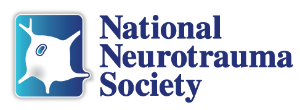Main Menu
Description & Objectives S07
S07: What We Know About Hippocampal Circuitry Dysfunction and the Future of Therapeutic Strategies







Chair: Grace Griesbach, PhD
S07.01 - Hippocampal Circuitry Dysfunction and Blast TBI
David Meaney, MD - University of Pennsylvania
S07.02 - Role of Neuro-Immune Plasticity in Posttraumatic Epilepsy
Viji Santhakumar, PhD - Rutgers University
S07.03 - Molecular Targets for Learning Dysfunction in the Chronic Recovery Phase of TBI
Coleen Atkins, PhD - University of Miami
S07.04 - Excitatory-Inhibitory Imbalances in the Hippocampus Contribute to Cognitive Impairment Caused by TBI
Akiva Cohen, PhD - University of Pennsylvania
Session Description
Although much is known about the acute circuitry and molecular changes that occur in the hippocampus after TBI, the changes that occur in the chronic recovery phase are still not completely understood. This is an area of critical importance since the hippocampus exhibits progressive atrophy, acts as a foci for seizure development, and is involved in cognitive dysfunction in the chronic recovery phase of TBI. This session will provide neurotrauma researchers our current state of understanding of the chronic circuitry changes that occur in the hippocampus and discuss the future of clinical therapeutic strategies. This session is composed of the leaders in this research area, all who specialize in hippocampal electrophysiology and TBI. Dr. David Meaney will discuss how hippocampal synaptic plasticity is altered after blast TBI. Dr. Viji Santhakumar will present highly novel data on how the immune system interacts with the hippocampus to contribute to the development of posttrauamtic epilepsy. Dr. Coleen Atkins will focus on the molecular targets in the hippocampus to improve synaptic plasticity in the chronic recovery phase of TBI. Dr. Akiva Cohen will present his latest findings on excitatory-inhibitory balance changes after TBI and present data on a therapeutic being tested in a current clinical study to improve cognition after concussion. This session will bring our neurotrauma researchers up to date about the circuitry changes that occur in the hippocampus after TBI as well as provide them with new ideas and insights into new potential therapeutics to test in the chronic recovery phase of TBI.
Learning Objectives
At the conclusion of this session, attendees will be able to:
1.Distinguish the types of circuitry changes that occur in the hippocampus across different TBI models
2.Review the types of therapeutics that are in current clinical development for cognitive dysfunction in the chronic recovery phase of TBI
3.Develop new ideas for potential therapeutic strategies to target hippocampal dysfunction after TBI
